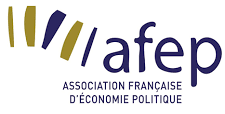Dans le cadre de la conférence annuelle de l’EAPE (Gênes, 17-19 septembre 2015.), une session spéciale sur l’état du pluralisme en Europe aura lieu. Nous reproduisons ci-dessous l’appel à communication pour cette session spéciale.
Call for a special session on “The state of pluralism in Europe – Developments and challenges”
Pluralism in teaching economics
In May 2014, the international student call for pluralism in economics attained global attention for the problem of a lack of pluralism in economic study programs. Curriculum changes and broad aspects of pluralist teaching are being discussed. The last EAEPE conference in Cyprus (2014) featured several special sessions on the teaching of economics from a pluralist perspective. This year, the discussion will be continued, focussing on advances, achievements and challenges in economic teaching programs. We explicitly welcome contributions by student groups investigating pluralism in teaching and study programs.
Pluralist job recruitment
Pluralist teaching can only happen with lecturers who are engaged with pluralism. However, the institutional landscape in most European countries is not very favourable to their recruitment in universities. We invite contributions investigating the situation of heterodox and pluralist scholars in European universities, including recruitment and career issues. Investigations on the impact of national university systems and of European policies on the state of pluralism across countries, including comparative institutional assessments are most welcome.
The special session will be concluded with a panel discussion about strategic questions.
Important dates:
Paper Submission Deadline: 31 May 2015
Notification of Acceptance: 15 June 2015
Full Paper Submission :4 September 2015
Abstract submission (300-750 words) should be made via e-mail to the session organizers. After acceptance, registration is possible on the EAEPE website. For questions please contact the organizers of the special session:
Agnès Labrousse (agnes.labrousse@u-picardie.fr) and Svenja Flechtner (svenja.flechtner@uni-flensburg.de).



